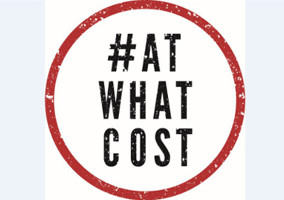Volunteers might be able to take charities to employment tribunals, under changes to sexual harassment law that are currently being consulted on.
NCVO has said this is "potentially a huge shift" for charities and volunteers.
The government has opened a consultation on sexual harassment in the workplace and the legal protections available under the Equalities Act 2010.
The proposals could see charities liable if they fail to protect their volunteers from harassment by members of the public or service users.
The proposals: Extending legal protections and a preventative duty on employers
The Equality Act 2010 says that employers are legally responsible if an employee is sexually harassed at work by another employee, and the employer has not taken reasonable steps to prevent this.
This consultation looks at whether there is more that the law could do to protect people in the workplace from sexual harassment.
The government’s impact assesment lays out several options.
- Option one – Do nothing. This includes non-legislative interventions that are being taken forward separately.
- Option two - The consultation proposes changing the Equality Act 2010 to make employers legally liable if they fail to take all reasonable steps to protect their staff from third party harassment.
- Option three – The consultation explores a number of other changes to the Equality Act 2010. These include: imposing a preventative duty on employers to prevent sexual harassment in their workplace; expanding the Equality Act’s workplace protections to include all interns, and some volunteers; extending Employment Tribunal time limits under the Equality Act.
It states that option number two, potentially with elements of option three, is the most likely option.
NCVO: The inclusion of volunteers 'raises questions'
In a blog today, Shaun Delaney, volunteering development manager at NCVO, wrote: “Volunteers should certainly receive the same level and quality of protection as paid staff. However, bringing them into the scope of this law is potentially a huge shift for the organisations that involve more than 20 million volunteers in their work in the UK.
"It also raises questions about the line between the fundamental voluntary nature of volunteering and employment law. For example, to enforce this proposal, would volunteers need to have access to employment tribunals? This would be a major step for the tens of thousands of organisations that involve volunteers and are often entirely volunteer led themselves.”
The consultation asks about the possibility of creating two legal categories of volunteering where only those at larger organisations or in formal roles would be covered by the law, while others would not be.
Delaney said: “This could devalue volunteers in smaller charities or those giving time in informal ways. Not only could this be a confusing distinction, it also creates an incentive to avoid the legal issues of creating more formal roles.”
Estimated costs to the sector
The government has estimated the costs of these proposals. It says that an additional 22 to 38 harassment cases might be brought forward by charity volunteers annually.
In 2017 and 2018 there was an average of 70 tribunal cases per year recorded on the database which referred to “sexual harassment”.
The average compensation awarded in a discrimination tribunal case over the period 2015/16 to 2017/18 was £11,753.
The impact assesment suggests that the largest single cost from the introduction of these provisions covers familiarisation with the new requirements placed on them. This is assumed to be a one-off cost in the first year, 2020.
The main identified additional annual costs to business arise from compensation, settlement and legal costs of defending additional Employment Tribunal cases that are brought as a result of the legislative changes. These costs apply to all changes.
Moreover, costs include the proposed additional compensation which could be paid to employees as a result of a breach of employers’ duty to protect them against sexual harassment. These costs only apply to changes from the preventative duty on employers.
The consultation is open until 2 October. The government is asking organisations to respond to the detailed elements in their Legal protections under the Equality Act 2010 document. Details about how to respond can be found on the government’s consultation page. There is also a survey for individuals’ responses.
|
Related articles
Stephen Cotterill: #AtWhatCost campaign against sexual harassment in fundraising
Sexual harassment is endemic and often ignored to secure donations, but at what cost to fundraisers?












